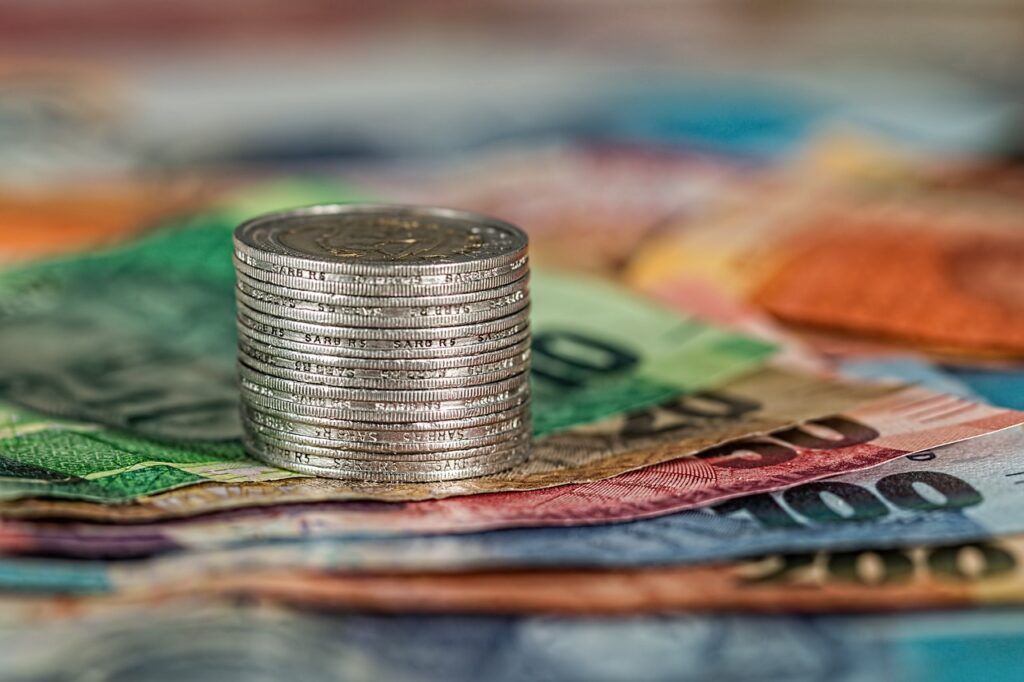The Boring But Important Early Step Towards Financial Freedom And A Stress-free Life
Let’s talk about something that might not sound exciting, but it is incredibly important: You need to save an emergency fund.
I know, I know, you might be thinking, “An emergency fund? That’s boring!” But hear me out – an emergency fund can be the difference between financial ruin and financial stability.n

Imagine driving down the highway, and suddenly, your car starts making strange noises. You pull over and realize that your engine has blown a head gasket. This happened to me once and it wasn’t good. You’re going to need a new engine or maybe even a new car, and that’s going to cost you. Without an emergency fund, you might be forced to take out a high-interest loan or put the expense on your credit card, which could leave you in debt for a considerable amount of time.
Now, imagine that you have an emergency fund set up. You won’t have to stress about where you’ll get the money to pay for the new car because you have a stash of cash set aside for emergencies. Instead of worrying about money, you can focus on fixing your car or finding another car and getting back on the road. See the difference? Even the ability to rent a short-term option would ease your mind. And that is the key thing – the removal of financial stress. This is the power of the emergency fund.
Question: Can’t my credit card be my emergency fund?
No. Put simply, a credit card is not an emergency fund. It may get you out of trouble in the short term. Great. But the high-interest charge on a credit card is simply going to make your situation more difficult and add to the stress factor. It will also impact your other saving and investing goals.
So, what is an emergency fund?
Simply put, an emergency fund is a stash of cash that you set aside for unexpected expenses. These expenses could be anything from a car repair to a medical emergency to a job loss. The point of an emergency fund is to have a safety net that you can fall back on in times of crisis. Save it somewhere that earns a reasonable interest rate and hope that you never need to use it. But make sure it is able to be withdrawn quickly.
But how much should you save in your emergency fund?
The general rule of thumb is to save three to six months’ worth of living expenses. So, if your monthly expenses are $3,000, you should aim to save at least $9,000 to $18,000 in your emergency fund. If you’re self-employed or work in a volatile industry, you might want to save up to a year’s worth of living expenses.
I know, saving up that much money might sound daunting. But the key is to start small and be consistent. Aim to save a set amount each month, even if it’s just $50 or $100. Over time, your emergency fund will grow, and you’ll have a safety net that can provide you with peace of mind and financial security in times of crisis.
Now, let me share a real-world example with you. A few years ago, a friend of mine lost her job unexpectedly. She had been working at the same company for over a decade and never thought she would be laid off. But she was let go when the company went through a round of layoffs.

Thankfully, my friend had an emergency fund. She had been saving diligently for years and had six months’ worth of living expenses set aside. While losing her job was a blow to her ego, she didn’t have to worry about how she was going to pay her bills or put food on the table. She had a safety net that allowed her to take her time and find a new job that she truly enjoyed.
Another real-world example is a medical emergency. A few years ago, my dad had a heart attack. It was unexpected and scary, and he had to be rushed to the hospital for emergency surgery. While we were all worried about his health, we didn’t have to worry about how we were going to pay for the surgery. My dad had an emergency fund set up, and it covered the cost of the surgery and his recovery time.
Without that emergency fund, my dad would have had to rely on credit cards or loans to pay for his medical expenses. He would have been stressed out about money on top of everything else he was going through. But because he had an emergency fund, he could focus on his health and recovery.
So, how do you set up an emergency fund?
It’s simple!
- Determine how much you need: Calculate your monthly expenses and multiply that number by three to six. That’s how much you should aim to save in your emergency fund.
- Open a separate savings account: Your emergency fund should be kept separate from your other savings and checking accounts. This will make it easier to track and prevent you from accidentally dipping into it for non-emergency expenses.
- Automate your savings: Set up an automatic transfer from your checking account to your emergency fund savings account each month. This will ensure that you’re consistently saving money without having to think about it.
- Start small: Don’t stress about saving the full amount at once. Aim to save a set amount each month, even if it’s just $50 or $100. Over time, your emergency fund will grow.
Remember, setting up an emergency fund is a crucial step in securing your financial future. Start small, be consistent, and before you know it, you’ll have a safety net that can provide you with peace of mind and financial security in times of crisis. Also remember, this is just one part of your financial plan. It means that you can continue other parts of the plan like monthly investing, even when a financial crisis arises. It also means that you won’t resort to costly high-interest loans or even higher-interest credit cards.
You can look at this as the least exciting but very important first or second step on your path to financial freedom. Your path may begin a little like this:
Step 1: Reduce or eliminate all unnecessary debt and other payments
Step 2: Save 3 months of expenses for your emergency fund
Step 3: Pay yourself first, by allocating a set monthly amount for investing

First steps aren’t usually exciting. But they can make a huge difference when times get tough. And if times don’t get tough, they still provide peace of mind. With money, it really is all about peace of mind. Money has the ability to reduce stress. Hence this rather boring early step has significant power. Please don’t skip it.






Pingback: Debt: Ten Simple Tips For Getting Out Of It | The Finance Teacher
Very well written! The insights provided are very valuable. For additional information, check out: LEARN MORE. Looking forward to the discussion!
A very well-written piece! It provided valuable insights. What are your thoughts? Check out my profile for more discussions!